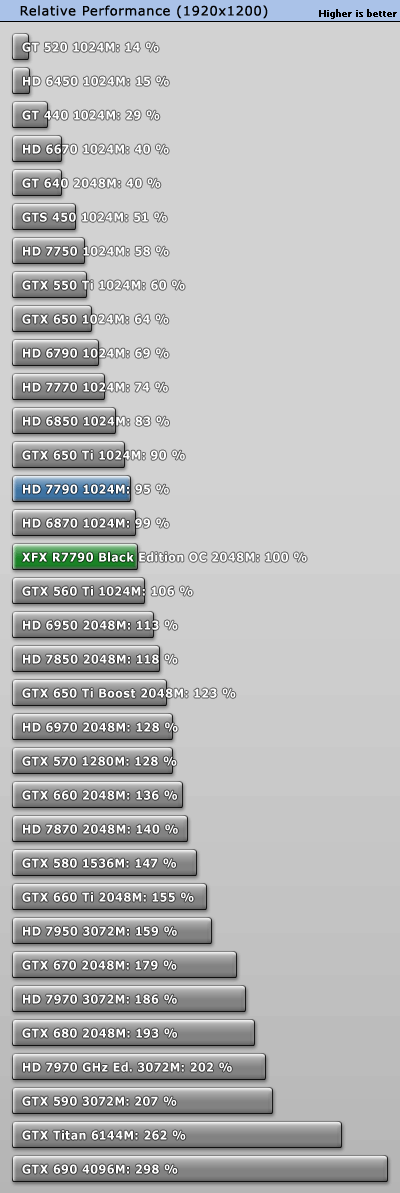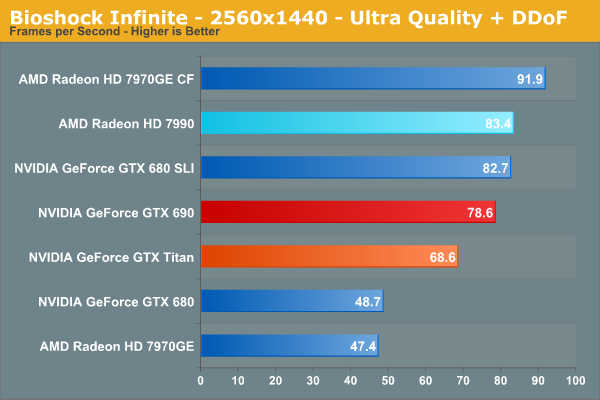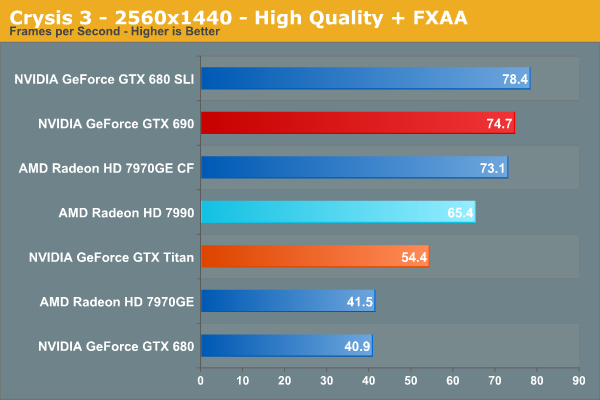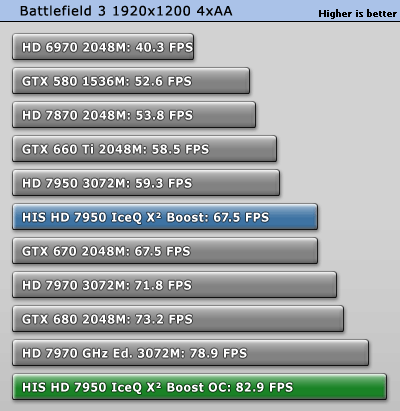The 7950 is ridiculously under clocked @ 800Mhz, AMD did that to keep it some distance from the 7970 which only has about 250 SP's more, Clock for clock there is not much difference between them.
You also need to keep in mind that Anand quite obviously do not up date their GPU charts,
http://www.anandtech.com/bench/Product/550?vs=647 look at the most well known game there, BF3. according to that the GTX 660TI is 20% faster than the 7950.
AMD have made vast driver improvements since then, if you look around other reviewers, who have updated their charts to reflect later drivers you can see how out of sync Anand's charts are.
So some things you need to know, the 7950 is clocked about 30% lower than it should be, you can fix that in seconds by adjusting a slider in CCC or MSI AB...
Base clock 7950's do 50% overclocks day in day out, some will do even more.
Also, AMD's GPU's are designed with game GPU compute in mind, while Nvidia strip those sort of things out to save money and reduce power consumption.
As a result when a game uses GPU compute to render advanced lighting, DOF, StressFX and the like Nvidia grind to a halt, they can't handle it, as demonstrated in BIOShock... TombRaider...
http://www.techspot.com/review/645-tomb-raider-performance/page4.html
Look at that, 7970 GE faster than Titan, 7870 = GTX 680......
Call me a fanboy if you like, i don't even think Kepler is a proper GPU, its just a cost cut image rendering device, throw any real work at it and it chokes.
Whats more its holding game progress back, Nvidia have always involved them selves in game development which is why they had looked good in the past.
But not any more, AMD have finally pushed the GCN arch out there and developers love it. now games are free to progress!








